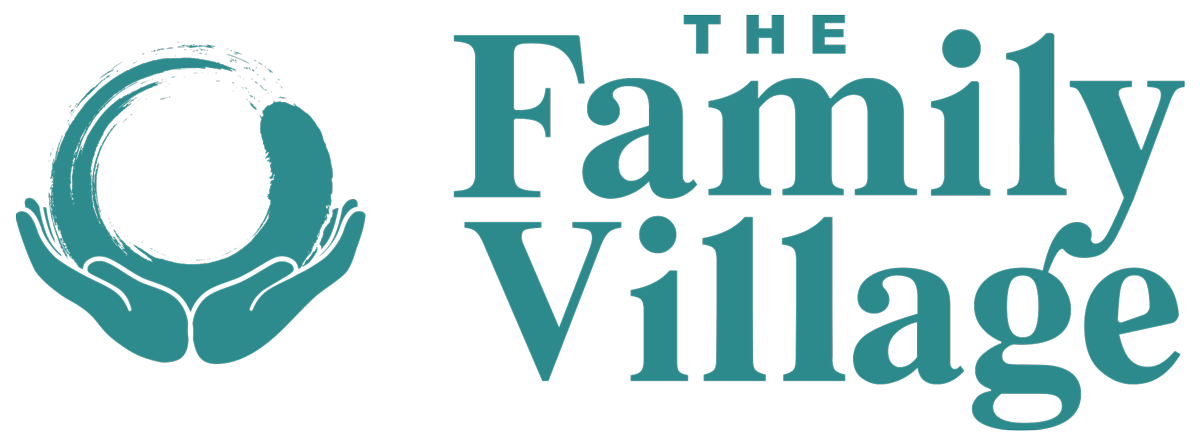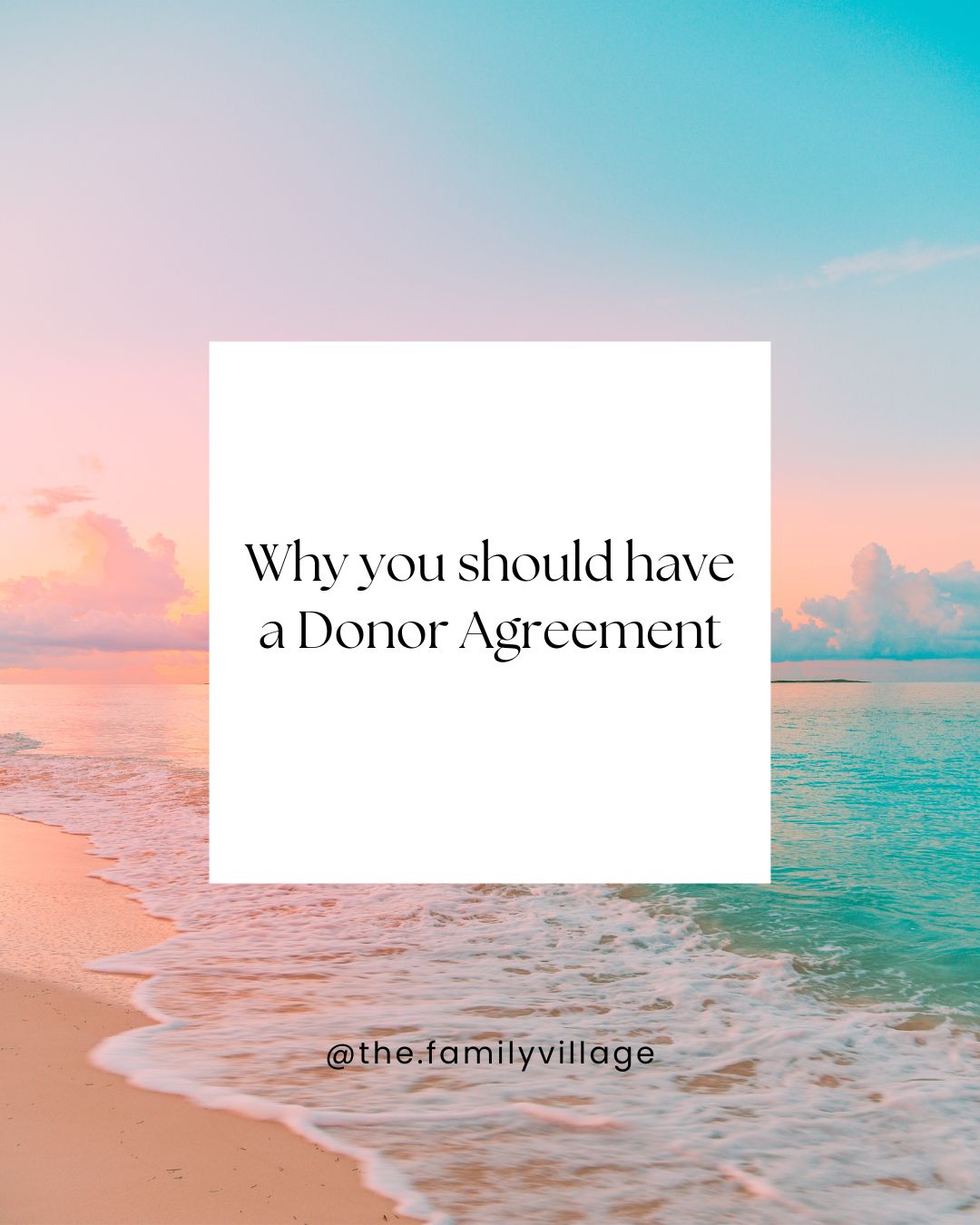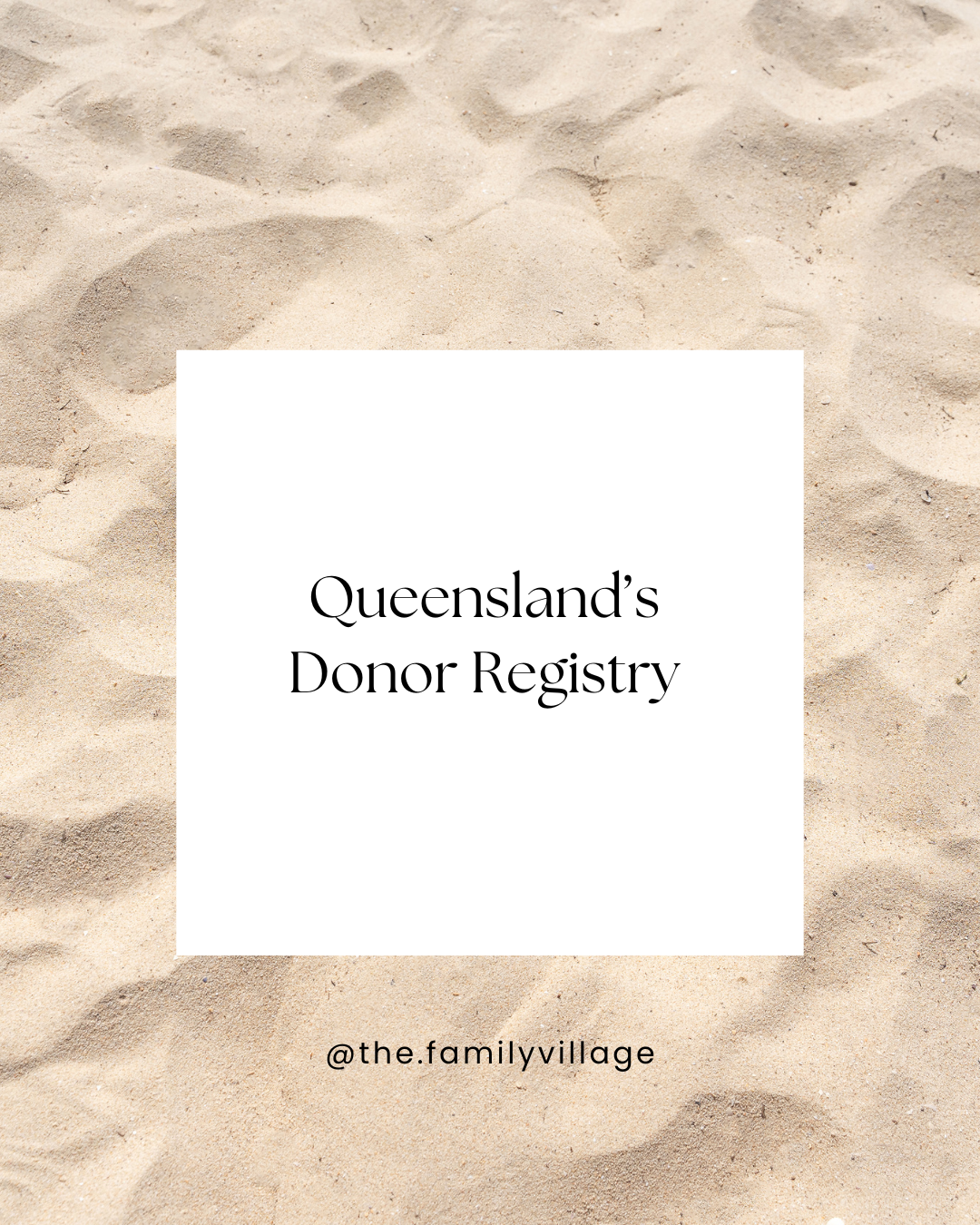A donor agreement is a written agreement between a donor (of sperm or egg or embryo) and a recipient/s. Donor agreements are more common with sperm donation, however, they are relevant (and sometimes necessary) for egg and embryo donation as well.
If your donor sperm, egg, embryo is coming from a close family member, a friend or someone you met in a group online, or you are a donor, we recommend that you consider entering into a donor agreement.
Why
Predominately – to make sure that everyone is on the same page. The last thing anyone involved in a donor arrangement wants is for a misunderstanding to arise as to the level of involvement the donor will have, or won’t have, in a child’s life.
Whilst I did not need to use a donor at any stage through IVF or Surrogacy, being involved in many online groups made me realise that every willing donor has a different expectation on the level of involvement they want to have in a child’s life.
A donor may also want some comfort on the expectation of intended parents as to their ongoing involvement.
Enforceability
Donor agreements are not enforceable at law. Having said that, if needed in a Court, they provide great evidence of what each of the contributing parties intended at the start and during their donor journey together.
Yes, there have been cases where a donor has, at a later stage of life, sought parenting orders in relation to a child born via a donation (which was not successful) – and of course, the opposite situation could also arise! There are provisions of the Family Law Act that define who the parent of a child is if a donor is involved and the child is conceived through artificial insemination as opposed to traditional conception (sexual intercourse) [see our blog here].
The process of negotiating and drafting a donor agreement also provides a great opportunity for open discussions and in a lot of circumstances, leads to necessary conversations that would otherwise not have occurred.
We We can assist with negotiating and drafting donor agreements regardless of whether you are the donor or recipient. You can also explore more insights in our blog.




